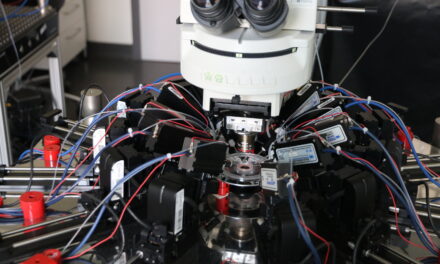Jet lag could soon become a thing of the past, thanks to a breakthrough study that has revealed how a specific protein, Casein Kinase 1 delta (CK1δ), regulates our body’s circadian rhythms. Researchers from Duke-NUS Medical School and the University of California, Santa Cruz, have made strides in understanding how this protein can help realign our biological clocks, paving the way for potential treatments to counteract jet lag and other circadian rhythm disorders.
The Body Clock and Circadian Rhythms
Our circadian rhythms are the natural 24-hour cycles that regulate essential functions like sleep-wake patterns, hormone release, and even metabolism. Disruptions to this rhythm, such as those caused by crossing time zones, can result in jet lag—a temporary disorder that leaves individuals feeling fatigued, disoriented, and generally unwell.
This new research focuses on CK1δ, a protein that fine-tunes the timing of our circadian rhythms by tagging other proteins involved in the biological clock network. The study identifies crucial elements of this protein that can be targeted to restore balance to the body’s internal clock.
Cracking the CK1δ Protein Code
The team’s findings reveal that CK1δ plays a key role in governing circadian rhythms by interacting with specific sites on the protein where phosphate groups attach. These attachments, or tags, can modulate the protein’s activity, making CK1δ either more or less active in influencing our biological rhythms.
Professor Carrie Partch from the University of California, Santa Cruz, explained, “We identified three specific sites on CK1δ’s tail where phosphate groups can attach. When these sites are tagged, the protein becomes less effective in regulating our circadian rhythms.”
Using high-resolution analysis techniques such as spectroscopy and spectrometry, the researchers mapped the protein’s structure, pinpointing the sites that are most important in controlling CK1δ activity. These insights open the door for the development of treatments that could reset the body’s clock in a targeted manner.
Variants of CK1δ and Their Influence on Jet Lag
The study also explored two isoforms of CK1δ, known as δ1 and δ2, which have slightly different structures but play distinct roles in regulating circadian rhythms. Professor David Virshup of Duke-NUS discovered that the δ1 variant is more self-inhibiting than δ2 due to its interaction with the protein’s tail region. Mutations in δ1 lead to more active regulation of the circadian clock, suggesting that manipulating these variants could help realign disrupted biological rhythms.
“This discovery is exciting because it gives us a precise target to modify circadian rhythms,” said Professor Virshup. “By altering the activity of δ1, we could potentially develop therapies to mitigate the effects of jet lag or other circadian rhythm disorders.”
Beyond Jet Lag: Broader Health Implications
While jet lag is a primary focus, the implications of this research extend far beyond the temporary sleep disruptions caused by travel. CK1δ is involved in a range of critical processes, including cell division, cancer progression, and neurodegenerative diseases. By understanding how CK1δ operates, scientists may also develop new treatments for conditions related to these processes.
Professor Patrick Tan from Duke-NUS emphasized the broader health benefits that could stem from this research: “Regulating our internal clock isn’t just about overcoming jet lag. It’s about improving sleep quality, metabolism, and overall well-being. This discovery has the potential to impact various health conditions.”
The Future of Circadian Rhythm Therapies
Looking ahead, the researchers plan to investigate how real-world factors such as diet and environmental changes can influence CK1δ’s activity. By understanding these external influences, they hope to devise even more effective strategies for managing circadian rhythm disruptions.
For frequent travelers, this breakthrough offers hope for faster adjustment to new time zones and the reduction of jet lag symptoms. The development of targeted therapies based on CK1δ could lead to more accessible solutions for those struggling with sleep disturbances, not only enhancing comfort but also improving health outcomes.
The findings of this study, published in the Proceedings of the National Academy of Sciences, mark an important step toward understanding and controlling the mechanisms that regulate our biological clocks, potentially offering relief to millions affected by circadian rhythm disorders.












